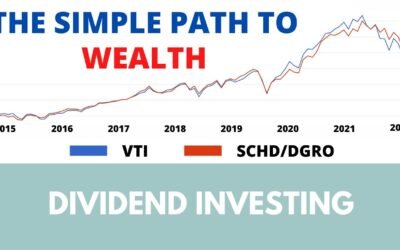Understanding Inflation-Indexed Bonds
Inflation-indexed bonds, also known as inflation-linked bonds, are a type of government or corporate bond designed to protect investors from the eroding effects of inflation. These bonds are particularly appealing in times of economic uncertainty and rising inflation rates. In this article, we will delve into the various benefits of inflation-indexed bonds, exploring their structure, advantages, and potential drawbacks.
What Are Inflation-Indexed Bonds?
Inflation-indexed bonds are debt securities that provide returns adjusted for inflation. Unlike traditional bonds, which pay a fixed interest rate, the principal and interest payments of inflation-indexed bonds are adjusted based on changes in a specified inflation index, such as the Consumer Price Index (CPI). This adjustment ensures that the bond’s real value is maintained over time, offering a hedge against inflation.
How Do Inflation-Indexed Bonds Work?
To understand the mechanics of inflation-indexed bonds, it’s essential to grasp how they differ from conventional bonds. Here is a step-by-step breakdown of their functioning:
- Issuance: Inflation-indexed bonds are issued by governments or corporations, typically with a fixed maturity date.
- Principal Adjustment: The bond’s principal value is adjusted periodically based on changes in the inflation index. If inflation rises, the principal increases; if deflation occurs, the principal decreases.
- Interest Payments: Interest payments, also known as coupon payments, are calculated based on the adjusted principal. This means that as the principal increases with inflation, the interest payments also rise.
- Redemption: At maturity, the bondholder receives the adjusted principal amount, ensuring that the investment’s real value is preserved.
Benefits of Inflation-Indexed Bonds
Investing in inflation-indexed bonds offers several advantages, making them an attractive option for various types of investors. Below, we explore the key benefits in detail:
Protection Against Inflation
One of the primary benefits of inflation-indexed bonds is their ability to protect investors from inflation. As the principal and interest payments are adjusted for inflation, the real value of the investment is preserved. This feature is particularly valuable during periods of high inflation, where traditional fixed-income investments may lose purchasing power.
Stable and Predictable Returns
Inflation-indexed bonds provide stable and predictable returns, as the adjustments for inflation ensure that the bond’s real value remains constant. This predictability makes them an attractive option for risk-averse investors seeking a reliable income stream.
Diversification Benefits
Including inflation-indexed bonds in an investment portfolio can enhance diversification. These bonds tend to have a low correlation with other asset classes, such as equities and traditional fixed-income securities. As a result, they can help reduce overall portfolio risk and improve risk-adjusted returns.
Government Backing
Many inflation-indexed bonds are issued by governments, such as the UK Treasury or the US Treasury. These bonds are considered low-risk investments due to the backing of the government, providing a high level of security for investors.
Tax Advantages
In some jurisdictions, the interest income from inflation-indexed bonds may be tax-exempt or subject to favourable tax treatment. This can enhance the after-tax returns for investors, making these bonds an even more attractive investment option.
Potential Drawbacks of Inflation-Indexed Bonds
While inflation-indexed bonds offer numerous benefits, they are not without potential drawbacks. Investors should be aware of these limitations before making an investment decision:
Lower Initial Yields
Inflation-indexed bonds often have lower initial yields compared to traditional fixed-income securities. This is because the inflation adjustment feature provides additional value, which is reflected in the lower starting yield. Investors seeking higher immediate income may find this aspect less appealing.
Complexity
The structure of inflation-indexed bonds can be more complex than traditional bonds, making them less accessible to novice investors. Understanding the mechanics of principal adjustments and interest calculations requires a higher level of financial literacy.
Market Risk
Like all bonds, inflation-indexed bonds are subject to market risk. Changes in interest rates, economic conditions, and investor sentiment can impact the market value of these bonds. While the inflation adjustment feature provides some protection, it does not eliminate market risk entirely.
Limited Availability
Inflation-indexed bonds may not be as widely available as traditional bonds, particularly in certain markets. This limited availability can restrict investment options and make it more challenging to build a diversified portfolio of inflation-indexed securities.
Comparing Inflation-Indexed Bonds to Traditional Bonds
To better understand the benefits of inflation-indexed bonds, it is helpful to compare them to traditional bonds. The table below highlights some key differences:
| Feature | Inflation-Indexed Bonds | Traditional Bonds |
|---|---|---|
| Principal Adjustment | Adjusted for inflation | Fixed |
| Interest Payments | Based on adjusted principal | Fixed rate |
| Inflation Protection | Yes | No |
| Initial Yield | Lower | Higher |
| Market Risk | Present | Present |
| Complexity | Higher | Lower |
Who Should Consider Investing in Inflation-Indexed Bonds?
Inflation-indexed bonds can be a suitable investment for various types of investors. Here are some profiles of investors who may benefit from including these bonds in their portfolios:
- Risk-Averse Investors: Those seeking a low-risk investment with stable and predictable returns may find inflation-indexed bonds appealing.
- Retirees: Retirees looking to preserve their purchasing power and secure a reliable income stream can benefit from the inflation protection offered by these bonds.
- Long-Term Investors: Investors with a long-term investment horizon can use inflation-indexed bonds to hedge against inflation and enhance portfolio diversification.
- Income-Focused Investors: Those seeking regular income payments that keep pace with inflation may find these bonds attractive.
How to Invest in Inflation-Indexed Bonds
Investing in inflation-indexed bonds can be done through various channels. Here are some common methods:
Direct Purchase
Investors can purchase inflation-indexed bonds directly from the government or through a brokerage account. This method allows for direct ownership of the bonds and provides full control over the investment.
Mutual Funds and ETFs
Mutual funds and exchange-traded funds (ETFs) that focus on inflation-indexed bonds offer a convenient way to gain exposure to these securities. These funds provide diversification and professional management, making them suitable for investors who prefer a hands-off approach.
Retirement Accounts
Many retirement accounts, such as Individual Savings Accounts (ISAs) and Self-Invested Personal Pensions (SIPPs), offer the option to invest in inflation-indexed bonds. Including these bonds in a retirement portfolio can help protect against inflation and ensure a stable income stream in retirement.
Conclusion
Inflation-indexed bonds offer a unique investment opportunity for those seeking protection against inflation, stable returns, and portfolio diversification. While they come with certain drawbacks, such as lower initial yields and complexity, the benefits often outweigh the limitations for many investors. By understanding the mechanics and advantages of these bonds, investors can make informed decisions and potentially enhance their investment portfolios.

Q&A Section
- Q1: What are inflation-indexed bonds?
- A1: Inflation-indexed bonds are debt securities that provide returns adjusted for inflation, ensuring that the bond’s real value is maintained over time.
- Q2: How do inflation-indexed bonds protect against inflation?
- A2: The principal and interest payments of inflation-indexed bonds are adjusted based on changes in a specified inflation index, preserving the investment’s real value.
- Q3: What are the main benefits of investing in inflation-indexed bonds?
- A3: Key benefits include protection against inflation, stable and predictable returns, diversification benefits, government backing, and potential tax advantages.
- Q4: Are there any drawbacks to investing in inflation-indexed bonds?
- A4: Potential drawbacks include lower initial yields, complexity, market risk, and limited availability.
- Q5: Who should consider investing in inflation-indexed bonds?
- A5: Risk-averse investors, retirees, long-term investors, and income-focused investors may find inflation-indexed bonds suitable for their investment needs.
More reading about inflation-linked bond ETFs:














 How to trade CFD? (00:49)
How to trade CFD? (00:49) How to trade binary options*? (01:22)
How to trade binary options*? (01:22) Forex. How to start? (01:01)
Forex. How to start? (01:01)